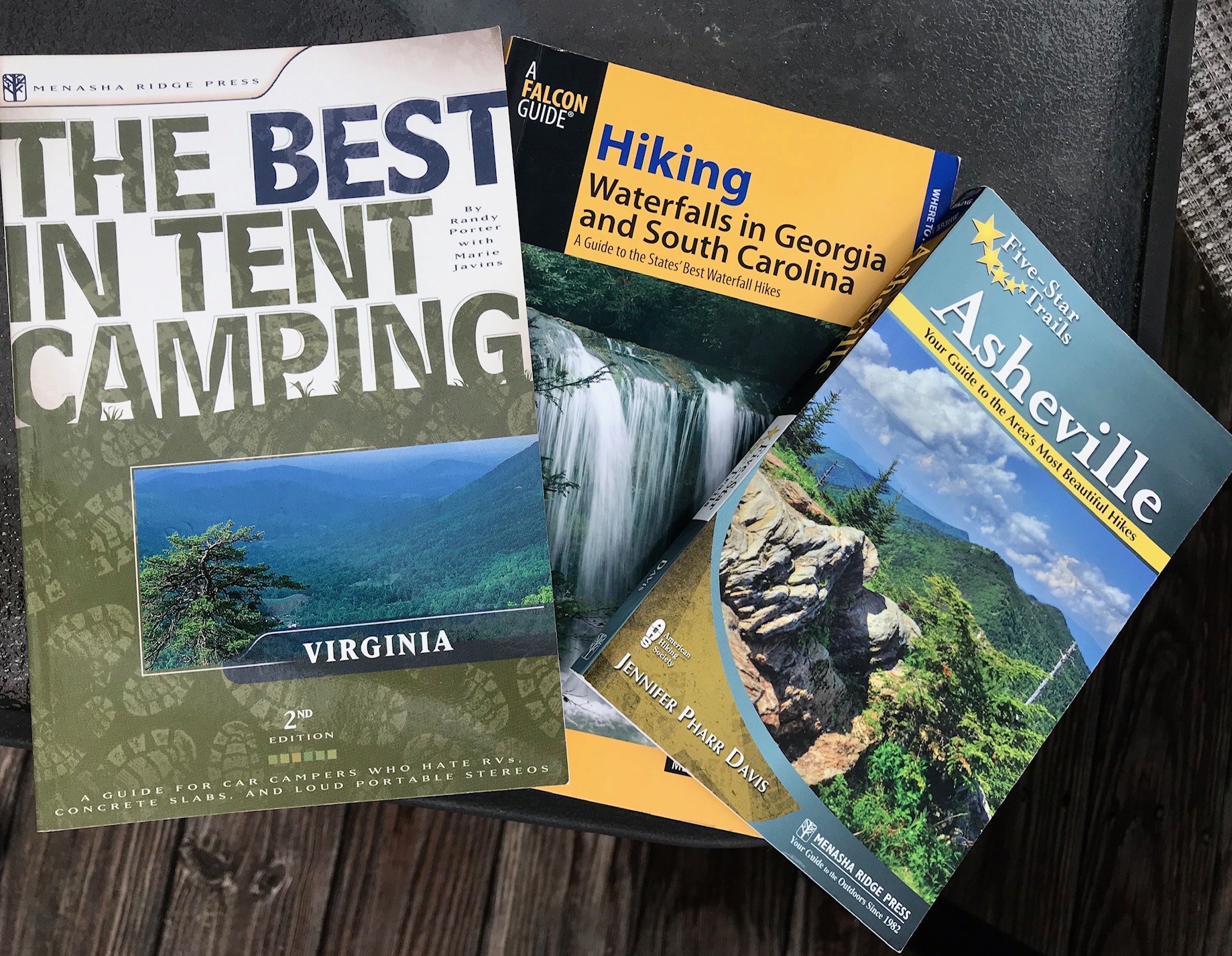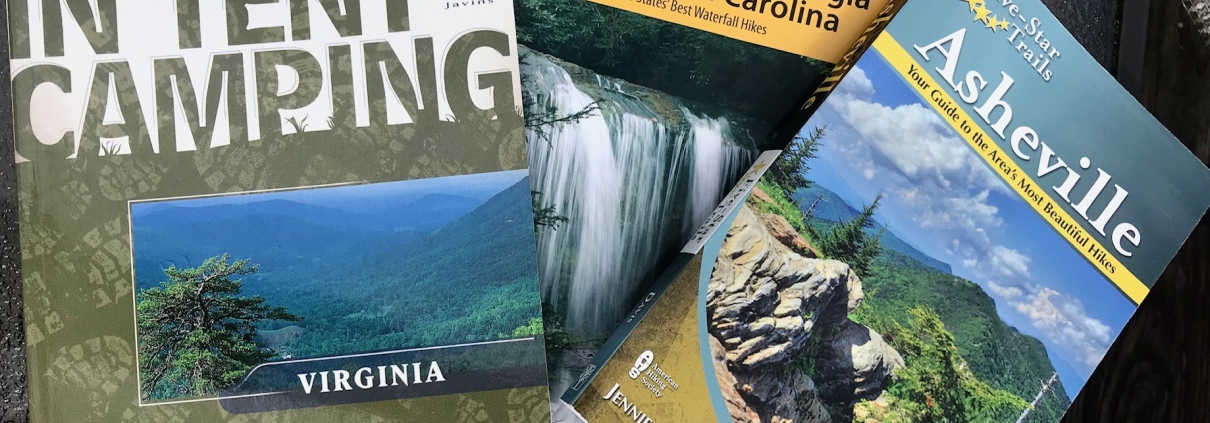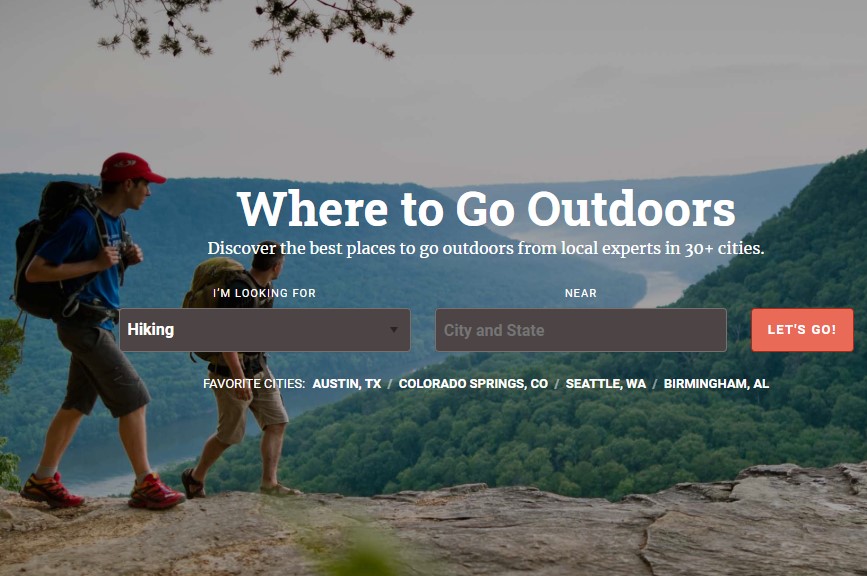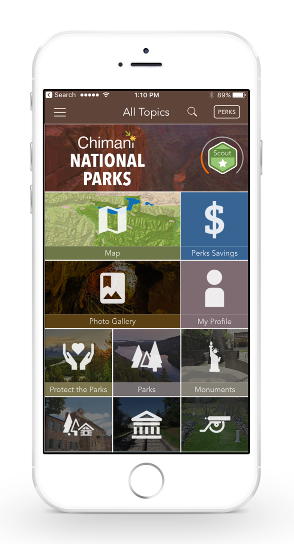Outdoor Recreation Resources in Your Community
If you’re ready to head outside on an adventure but have no idea what resources abound in your community, don’t fret—we’ve got you covered! From printed guidebooks to interactive websites, there’s a wealth of information out there to help you find outdoor activities right in your own backyard, whether you’re looking for a summer swimming hole or a day on the slopes.
Outdoor activity guidebooks
There’s nothing better than a well-thought-out, detailed guidebook, especially if you want a tangible resource that doesn’t require the internet. There are several publishing houses that specialize in guidebooks specific to the outdoor industry, offering tomes on activities from kayaking to rock climbing, from waterfall hikes to mountain biking for beginners.

Menasha Ridge Press is well known for its 60 Hikes Within 60 Miles, Five-Star Trails, and Best Tent Camping series. These books come complete with descriptions, directions, and all the details readers need to embark on an adventure. The 60 Hikes Within 60 Miles series includes versions for locations in New York City, Chicago, Denver, Los Angeles, Phoenix, St. Louis, and Boston—perfect for all of our big city families.
Falcon Guides are known for their full-color photos, detailed descriptions, and locations spanning the entire country. This publishing house offers options on everything from the best rail trails in the Pacific Northwest to flatwater kayaking in South Carolina and everything in between.
Quick tip: Before purchasing a guidebook, always check the publication date and make sure the book has been recently updated with the most accurate information possible. You can find guidebooks at stores such as REI or Barnes & Noble, directly from the publishers’ websites, from online retailers such as Amazon, or from most gift shops at state and national parks.
Outdoor activity online resources
There are a wide variety of options to peruse when it comes to online resources. Some websites are managed by professional organizations, while others, such as many regional websites, are run by a network of volunteers who update the information when they can.
REI’s hikingproject.com offers an abundance of information for trails all around the world. For instance, a quick search for Atlanta revealed more than 250 trails across the metro region. When you click on a specific trail within the area you’re searching, you’ll find an interactive map, photos, route description, local contacts, and other important information. There are also versions of this site for mountain biking, climbing, trail running, and skiing.
Another good site is alltrails.com, which offers users the ability to create an account for free and join a community of more than 10 million fellow explorers. With an account, you can save your favorites, keep lists of the trails you’ve completed, write reviews, and track lifetime statistics like mileage and elevation change.
For winter fun, onthesnow.com offers a variety of information for skiers. Browse articles outlining the “10 Best Ski Resorts for Kids & Families,” check snow reports and view webcams, and explore resorts by region from the Rockies to Europe. You can even compare resorts (including lift ticket prices, reviews, and trail statistics) and save your favorites.
A fun way to find hidden gems in your area and beyond is rootsrated.com. You’ll find articles highlighting everything from “The Top 12 Swimming Holes in New England” to “3 Epic Cycling Routes in the South” and from “Three Days of Adventure in the Beach Cities of Los Angeles” to “7 Excellent Spots for the Best Spring Skiing in North America.”
Regional websites are also good research options, such as the Mid-Atlantic’s hikingupward.com (which this author used almost exclusively when she lived in the Shenandoah Valley for nearly a decade). State trail associations, such as the Washington Trail Association, often offer a “hike finder” section. An easy Google search or a call to your local gear shop can help you find a similar resource in your neck of the woods.
Smartphone apps
The National Park Service is getting savvy with smartphones! National parks across the country have launched apps (available for both iPhone and Android) with a wealth of information about their specific regions. Currently, the NPS offers guides to Yellowstone, Grand Teton National Park, and a few more. There are also third-party apps with exhaustive guides to many more areas; our favorites include:
- National Parks by Chimani has information to all 419 U.S. national parks, including GPS-enabled maps (no WiFi or data needed to use) and detailed guides for more than 60 parks. And it’s free!
- REI Co-Op Guide to National Parks (a part of hikingproject.com) includes descriptions, tips for family trips, live location tracking, and much more.
One of the best for finding people to adventure with is meetup.com. Once you create an account, you can use the app to find organized groups that host in-person events near you, including hiking outings, camping trips, nature writing workshops—you name it! And, if you don’t see a group that pertains to your interests, you can easily create one. Facebook groups are also a popular way to meet new outdoor buddies, both in your hometown and beyond. The organizations Women Who Hike and Hikerbabes Community offer chapters across the globe for like-minded women who are passionate about getting outside and offer outings for all skill levels on a regular basis.
Additional resources
Not a fan of downloading multiple apps? Mosey on down to your local visitor center. Most large cities will operate independent visitor bureaus, while more rural locations may offer joint city/county or regional centers. These all-encompassing organizations stock their brick-and-mortar locations with a smorgasbord of brochures, pamphlets, and maps of local outdoor gems—and they’re usually free. Many have in-depth information on their websites, such as romanticasheville.com, one of western North Carolina’s premier sources of tourism information.
Independently-owned gear shops, along with national chains like REI, are typically staffed by those knowledgeable in local outdoor resources, so don’t be afraid to pick their brains! With the amount of information available today, there’s certain to be a resource relevant to your hometown just a few clicks away. And think outside the box: Maybe your local college or university has an outdoor program that offers outings for the public.




